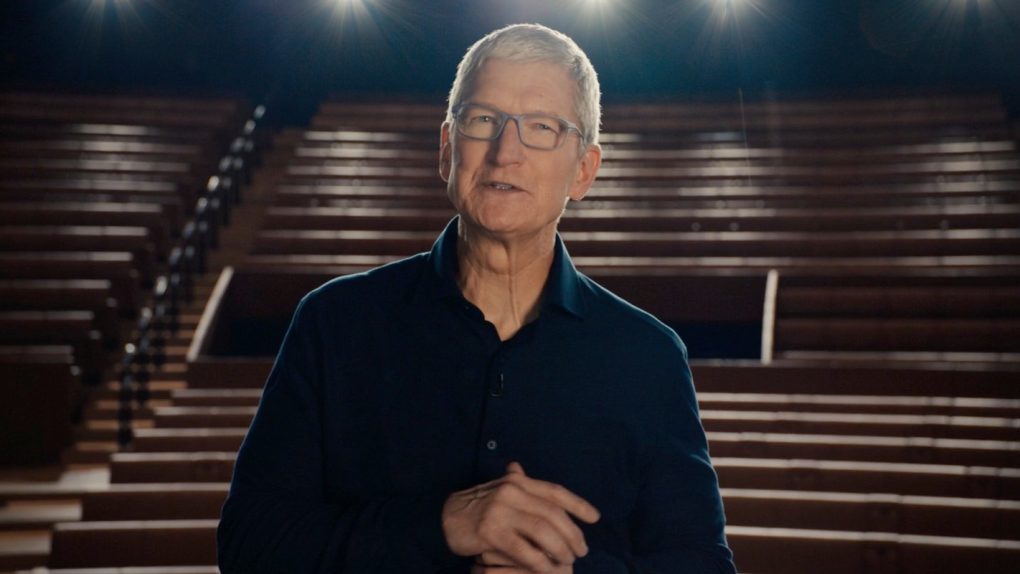- In a new interview, Apple CEO Tim Cook proclaimed that products like the Apple Watch are going to help Apple’s ambitions related to health and wellness surpass what the company has done so far with the iPhone.
- Cook says the company keeps getting letters from people who say the Apple Watch has saved their life.
- Products and offerings like Apple Watch and Apple Fitness+ are encouraging people to improve their health, aiming at lifestyle changes of a sort that the iPhone never really did to the same degree.
Most people wouldn’t have any trouble identifying the most successful products from Apple, with the range of possible answers spanning everything from iPhones and iPads, to Macs, the Apple Watch, and much more. Indeed, Apple is an insanely successful hardware company that consistently refreshes its lineup of popular consumer tech, such that the rumors have already started to mount well in advance of the iPhone 13 series launch that’s still months away.
Along those lines, we noted earlier this week how the next-gen iPhone is currently tipped to include a smaller notch this time around, as well as various screen and camera improvements, in addition to supporting a 120Hz refresh rates and an always-on display a la the Apple Watch.
To be sure, the iPhone generates an outsized share of Apple’s profits, and it’s the product most closely associated with the Cupertino-based consumer electronics giant in the popular consciousness. Nevertheless, Apple CEO Tim Cook has been insisting to anyone who will listen for a while now that Apple is actually working on something that will far surpass the iPhone in terms of importance to the company.
Stop and think about that for a moment. Less than a month ago, Apple turned in a monster quarterly performance, delivering more than $100 billion in quarterly revenue for the first time — partly thanks to iPhone revenue being up 17% year over year (jumping to $65.6 billion, beating an estimate of $59.8 billion).
In terms of where the iPhone goes next, a new patent suggests that Apple is studying technology to allow a phone display with a 60Hz default refresh rate to operate at up to 240Hz. This is an indication Apple might be working on devices that could support adaptive refresh rate screens, similar to Android phones like the Galaxy S21 Ultra.
Meanwhile, Apple’s signature device is so ubiquitous that footballer Marcus Rashford’s Time magazine cover photo was shot with an iPhone:
Who would have thought you could have captured this via an iPhone in my front room 🤯 thank you @TIME very proud ♥️ #TIME100Next pic.twitter.com/5rHFcEMAlB
— Marcus Rashford MBE (@MarcusRashford) February 17, 2021
Having said all that, here’s what Cook wants everybody to realize about the future and long-term legacy of Apple:
The iPhone is nice and all, but it will actually be in the realm of health and wellness where he thinks Apple will make an even bigger mark, thanks in part to products like the Apple Watch. Which, for one thing, continues to be the subject of one story after another of how it’s saved the wearer’s life — recent examples including a Georgia man with blood clots who says the watch saved his life, and a runner who was given an Apple Watch as an anniversary gift that ended up alerting him to heart problems he didn’t know he had.
Walking has always been one of my favorite ways to clear my head and gain new perspectives. We hope Time to Walk can bring a little inspiration, some companionship and perhaps a laugh all while enjoying the benefits of one of the healthiest activities. https://t.co/CaZpdwlVc2
— Tim Cook (@tim_cook) January 25, 2021
In an interview with Outside Magazine, Cook steered the conversation at one point away from the obvious products that have helped Apple become the most valuable company on the planet, and redirected the chat toward Apple’s health-related ambitions.
“I really believe,” Cook said, “that if you zoom out to the future and then look back and ask, ‘What has Apple’s greatest contribution been?’ it will be in the health and wellness area.”
During the interview, Cook mentioned letters he’s received from Apple users who credit the Apple Watch with saving their lives. He also talked up the watch’s ability to track health metrics and share data with researchers — something that around 400,000 Apple Watch users did, participating in a Stanford study that sought to determine whether wearables can identify irregular heart rhythms that suggest atrial fibrillation.
What all this means, Cook continued, is that Apple Watch can also “democratize research by having much larger constituencies that are able to participate.” Which is to say, it will certainly be interesting to watch Apple keep moving toward Cook’s goal of the health and wellness focus being Apple’s most important legacy. That’s something that will also be helped along by new products and offerings like Apple Fitness+, a workout subscription program that can be linked right to your Apple Watch, with new workouts viewable on whatever screen you’re watching it on.








